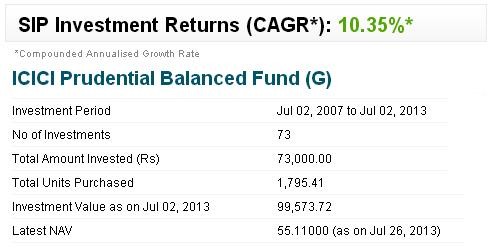What is a Balanced Fund Is it a Good Investment
Post on: 22 Май, 2015 No Comment

Mutual funds come in all shapes and sizes. By far, one of the most popular choices is the balanced fund. But if I asked most investors, “What is a balanced fund?” they couldn’t tell me. Even if you don’t currently own such funds you should know how to answer this question. If nothing else, it will help you clarify and sharpen your own particular investment strategy.
What is a balanced fund?
A balanced fund has a mixture of stocks (equity) and bonds (fixed income) in an effort to reduce risk yet provide growth for investors. This mix may shift over time or it may be fixed. The mutual fund prospectus spells this out.
Some funds allow the manager a great deal of discretion. At times the manager may decide she wants a 60/40 split. Other times, the manager may prefer a 40/60 split. If the by-laws allow it, the manager can make those changes.
Other balanced funds don’t allow the manager much leeway. They may have a fixed 60/40 split (for example) and may insist that the manager adhere to that asset allocation. You can find out how much discretion your manager has and your mutual fund holdings at a point in time by simply reading the prospectus.
If you buy a balanced fund you really should refer back to the prospectus. That’s because you may not want to buy a find if the fund manager has the power to significantly shift the asset allocation.
Who buys balanced funds?
People who buy these funds tend to be somewhat risk-averse. They are usually long-term investors who want to grow their assets but they don’t want to take on undue risk. As a result, they hedge their bets a little by not having all their investment eggs in one basket. Also, these people tend to be uncomfortable with the volatility that is inherent in a 100% equity portfolio. In other words, they may not be so worried about the long-term prospects of a full equity portfolio but they simply cannot stand the gyrations and roller coaster ride that equity investors must endure.
Are all balanced funds alike?
All balanced funds are not alike. In fact, it would be difficult to find any two that are very similar (unless they are index funds or ETFs ). Even if two particular funds had a similar fixed asset allocation, the securities held within those allocations would be vastly different from one fund to the next. Look at the chart below to an illustration of this point.
In other words, within one fund’s equity allocation, one fund would probably select very different stocks to hold as compared to the other fund. And on the fixed income side, the same is true. That’s why these funds have managers – to make these investment decisions.
How do I select the right balanced fund for my circumstances?
If you want to select the best balanced fund, I suggest you do two things. First, as I hinted above, read the prospectus to find out if the fund is a good fit or not. The prospectus will discuss the investment powers of the mutual funds manager (among other things) and that will be of particular interest to you.
The next thing I’d suggest you do is read my post on mutual fund evaluation. I would use the same exact process detailed there to find the right balanced fund. I’m not going to repeat the entire post here but I’ll summarize:
- Be clear on your investment objective.
- Get a list of all the appropriate candidates. (Your account custodian will help you do that.)
- Compare the funds’ performance based on the time-frame that’s important to you. (I use the trailing 12-months.)
- Decide and buy the fund.
Are balanced funds good investments?
I buy balanced funds on very rare occasion. That’s because I prefer to have greater control over my portfolios. Here’s what I mean. Let’s say I have $50,000 to invest and I want a balanced portfolio of 60% equity and 40% fixed income. Rather than invest all that money into one balanced fund, I prefer to take that $30,000 (60% of $50,000) and find the best equity funds possible. Then, I’ll watch those funds and adjust as needed. Likewise, for the fixed income, I may put 40% into fixed income, but with interest rates this low, I don’t want to take a big risk by buying long-term bond funds. You have to understand how bonds work and what the risks are and control that yourself. As a result, I’ll buy a few fixed income funds with that $20,000 but I might focus on short-term high-quality bond funds. Can you see where I’m going?
Rather than allow the manager to make the decision and then be a victim of his or her limitations (as set out by the prospectus) I’ll build my own balanced fund by selecting the best funds within each broad category .
How about you? Do you buy balanced funds? How do you determine which fund to buy? Or are you like me? Do you build your own fund balanced fund? How?














